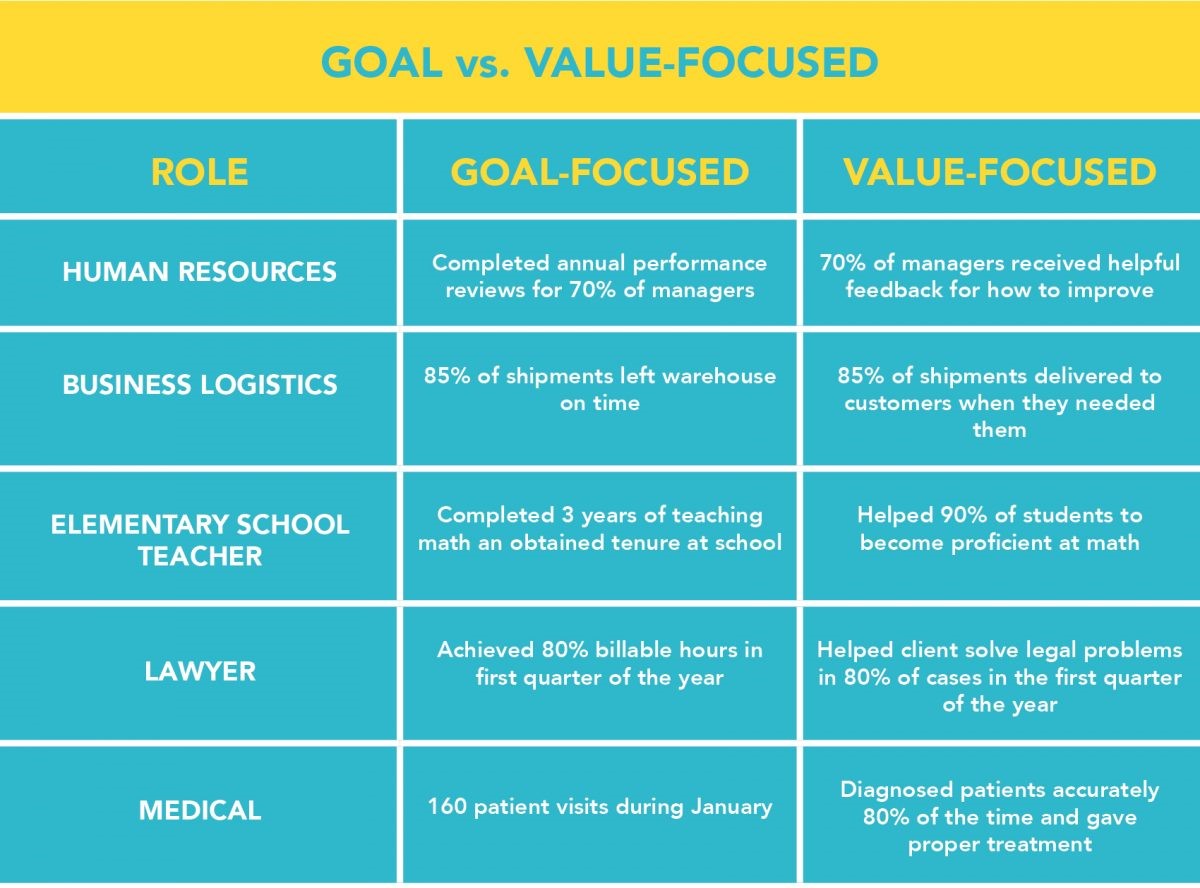If you’re like most people, you believe you’re being productive when you create output, are busy, or reach a goal. But what if those outputs aren’t valuable? Pursuing the wrong metrics will make you unproductive!
Here is a bit of an extreme example: When I conducted research at Hewlett-Packard some years ago, I visited an engineer at one of the company’s Colorado offices. After I introduced myself, he waved me off, claiming he was too busy to meet. And he was busy: He had to complete his goal for the week as specified in his job description, namely, submitting a quarterly project status report to headquarters. He sent off the report in time, as he had every previous quarter.
Good output, right? Yes, except for one issue. What I knew—and he didn’t—was that the corporate research and development division in Palo Alto no longer used those quarterly reports. His dispatches sank to the depths of an e-mail box that no one bothered to check. He thought he had been productive, but he had contributed zero value.
The advice, “start with goals” when planning an effort is wrong. We need to start with value, then proceed to goals. Ask yourself: What benefits (value) do your various work activities produce, really?
One major problem is that we confuse value with volume metrics. In the modern workplace, we have a perverse tendency to equate volumes of activity with accomplishments.
Doctors have traditionally measured their performance according to the number of patient visits they handled rather than how often they arrived at the correct diagnosis. Lawyers bill clients based on how many hours they work, regardless of whether they’re dispensing good counsel. Sales people fixate on revenues, regardless of whether their products end up benefitting customers. The chart below provides more examples of how people confuse reaching some internal goal with pursuing value-metrics.
We also have people who rack up volumes of activities and run around bragging about how busy they are as if busyness equals value. People mistake the number of meetings, task forces, committees, customer calls, customer visits, business trips, and miles flown for accomplishments, even if in reality all these activities may not add value. Think about it next time some colleague brags about all the frequent flier miles they have racked up in their job, as if that’s a measure of productivity! Being busy is not an accomplishment!
To shift from a volume view to a value perspective, ask yourself these questions:
- What are the key productivity metrics I use in my job? (Hint: where in the table below do you fall, left or right column?)
- What value are you truly creating in your job today?
- What new and additional value do you think you can create in your job? Every employee must have a precise definition of value as it relates to his or her role. While I have provided some examples of value creation, there isn’t enough space here to go into details. To learn more and gain a deeper understanding, I invite you to check out Chapter 3 in my book Great at Work.






.png)


%20(1).png)

What Did You Think?